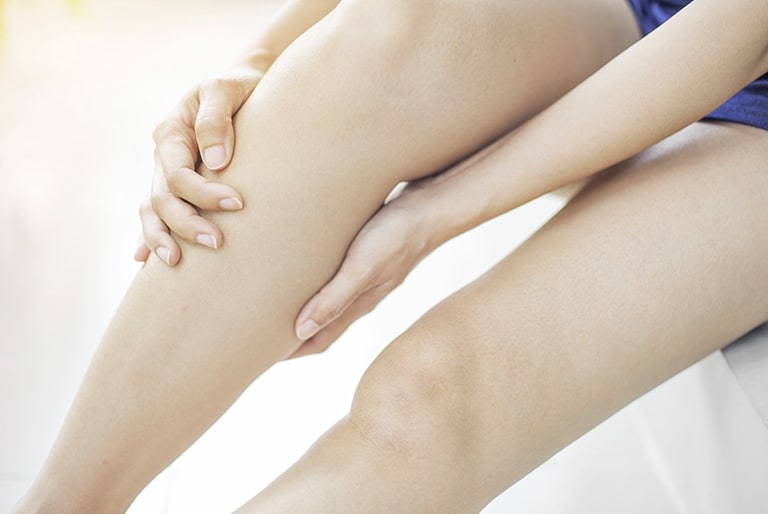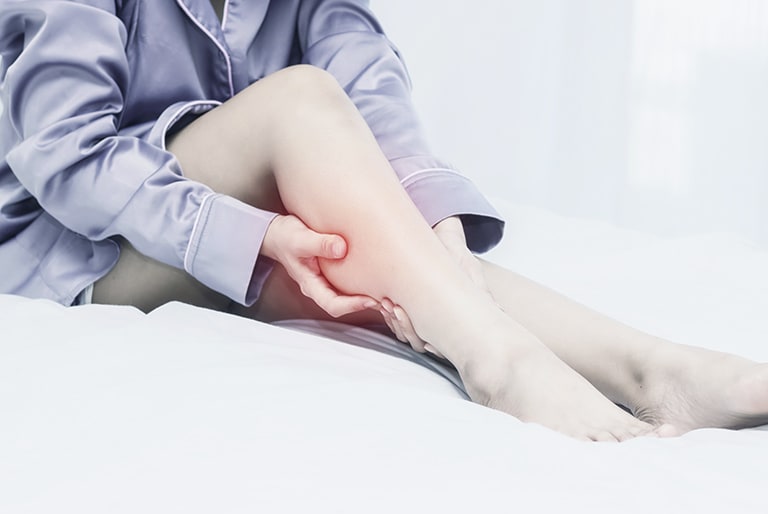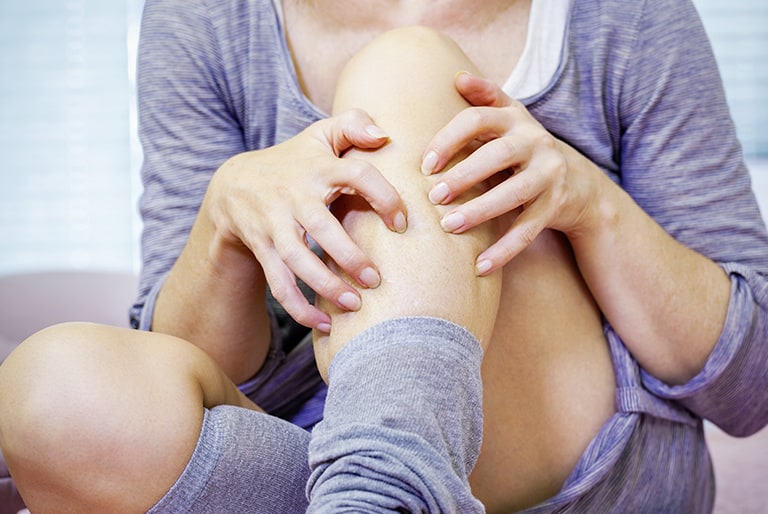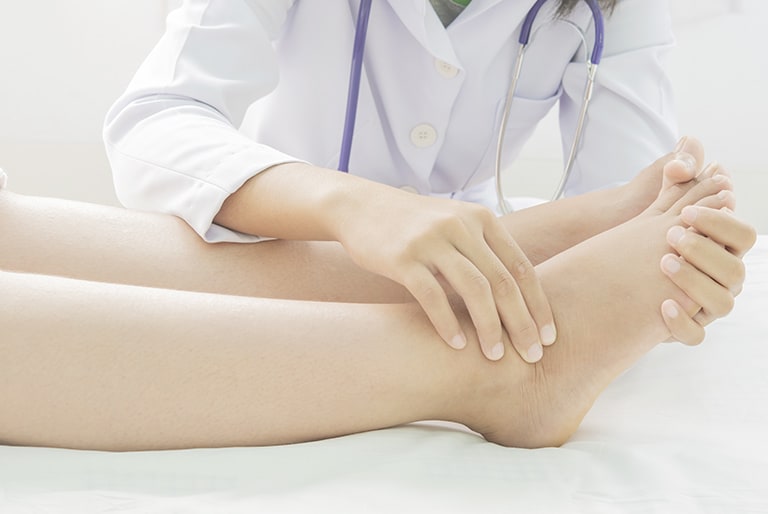
Pain in the legs
Muscle soreness, cramp in the calf, prolonged standing – everybody gets pains in the legs now and again. But the causes are not always harmless and they do not always disappear again by themselves. Sometimes the pain in your legs is a warning sign for serious diseases!
What causes pain in the legs?
There can be very different causes for pain in the legs:
- Injuries: of course, all types of injury have to be taken into consideration, such as bone fractures, torn muscles or strained ligaments. Ankles, knees and hips are surrounded by muscles, tendons, blood vessels and nerves, all of which can cause pain if they are incorrectly stressed.
- Muscle soreness: even muscle soreness after sport or physical exertion can also be painful.
- Cramp: anyone who has had cramp in their calf knows the sudden sharp pain. Cramp in your calf now and again is no cause for concern. But if you regularly get cramp in your calf at night time, you should have the exact causes investigated.
- Incorrect positioning: the incorrect positioning of your foot or leg can also be noticed by pain.
Pain in the legs can also be a symptom of the following diseases:
- Venous insufficiency: if blood collects in your lower leg, there is usually a distinctive swelling visible on the leg. The cause could be venous insufficiency, which in turn leads to your veins stretching and not being able to pump sufficient blood upwards towards the heart through the muscle pump. A functional disorder of the venous valve is also responsible for the blood which is pumped upwards dropping back down into your legs. Quite often varicose veins form, which protrude visibly beneath the skin.
- Arterial disease: a build-up of blood in your legs could also be the fault of arteriosclerosis, in which the arteries gradually harden and no longer transport sufficient blood. It is also possible that it is peripheral arterial occlusive disease (PAOD) which narrows the arteries.
- Cardiovascular diseases: various cardiovascular diseases can also lie behind pain in your legs, e.g. when your heart muscle does not pump strongly enough to ensure that blood circulates throughout your entire body.
- Vein thrombosis: if pains suddenly appear in your leg, your leg swells and feels warm to the touch, it could be vein thrombosis. In such a case, call the ambulance immediately or seek medical attention because deep vein thrombosis can cause life-threatening pulmonary embolism.
- Lipoedema: diseased fat deposits in tissue often cause heavy, swollen and painful legs.
- Back pain: tension in your back or problems with intervertebral discs can radiate down into your legs. A trapped nerve can also cause pain in your legs. The main cause here is often the sciatic nerve, which can trigger severe pain along the buttocks at the back of the upper thigh.
- Inflammation: different inflammation in joints or tissue can cause pain.
Last but not least, inactivity and excess weight can lead to overloading your legs and manifest itself as pain.
Can pain in your legs be dangerous?
You should be very alert if pain in your legs is also accompanied by other symptoms. Quite often pain in your legs is accompanied by other symptoms:
- Swollen legs
- Heavy legs
- Itchy legs
- Tingling sensation in your legs
- Feeling of tightness
- Spider veins
- Varicose veins
Quite often the cause is a circulation problem, venous insufficiency or cardiovascular disease. If such a disease is not treated early enough, there is a risk of thrombosis or a heart attack.
Where does the feeling of tightness in the legs come from?
In the worst case, a feeling of tightness in the calf is an alarm signal for vein thrombosis. The pain normally appears suddenly and only in one leg.
What helps against pain in the legs?
If the pain in your legs does not come from muscle soreness after sport, you should consult a doctor to clarify the reason for it. Injuries obviously require a different type of treatment from circulation problems. The following possible therapies can alleviate the acute pain:
- Cooling: cooling the affected area usually helps after an awkward movement or an injury, especially when the knee or the ankle swell up. Also, if the pain in your legs results from insufficient circulation, e.g. after a long day standing, cooling compresses, foot baths or gels can alleviate the pain.
- Heat: heat loosens tissue if you have tension in your legs and your back, e.g. by taking a hot bath or visiting the sauna. The contrast between hot and cold also stimulates circulation.
- Drinking: thick blood flows more slowly through veins than fluid blood does. So don’t forget to drink at least 2 litres of water or tea per day.
- Nutrition: a balanced, vitamin-rich diet with plenty of fruit, vegetables, fish, healthy fats and whole food products also provides a health benefit for your veins.
- Movement: so long as the pain does not come from an injury, movement is a part of the therapy. Moderate sport, strolls and foot gymnastics boost circulation in your legs.
- Compression therapy: it makes sense to wear compression stockings for better circulation in your legs because they support vein function with external pressure.
You can improve your blood’s fluidity with medicines in order to prevent pain in your legs, such as Veno SL® 300. The active ingredient it contains, Troxerutin, is extracted from an ingredient of the Japanese Pagoda Tree and additionally strengthens the vessel walls, so that your veins continue to be well-functioning.


